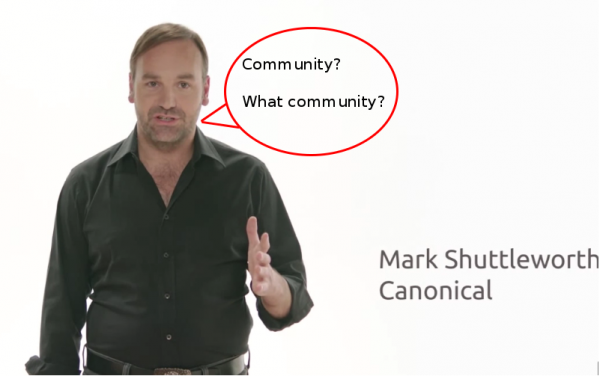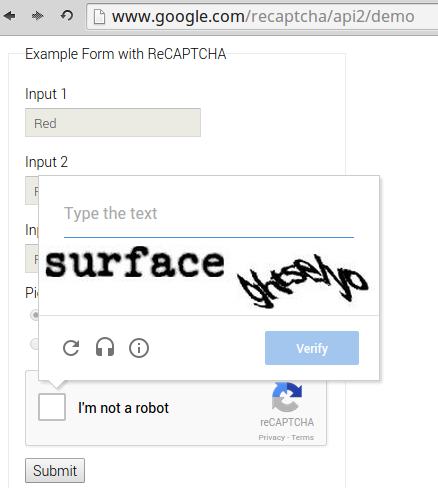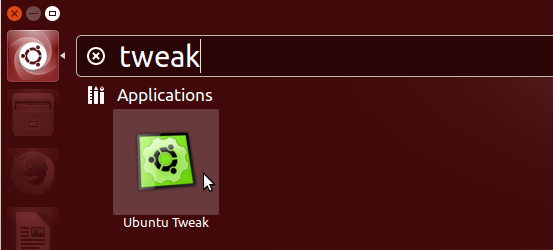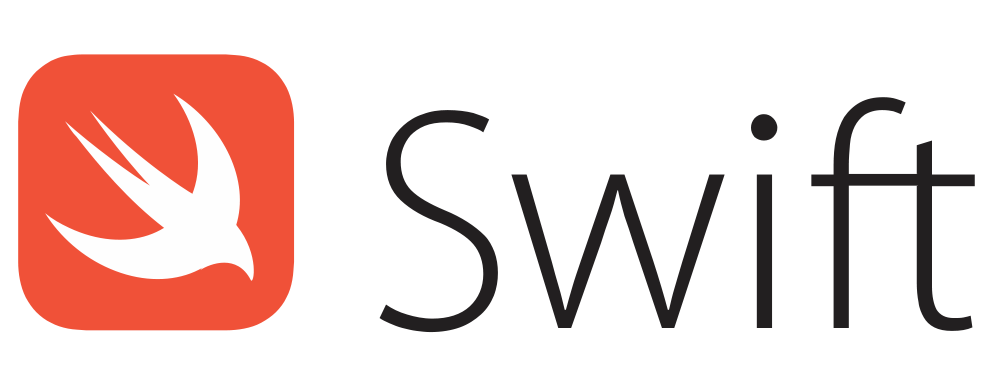That should be obvious to anybody who’s been following the development of Ubuntu, but for those who have not, here’s the deal: Ubuntu is not a community distribution.
The sooner you get that, the better, especially if you’ve been under the illusion that Mark Shuttleworth cares very much about your own idea of what a community distribution should be.
Yes, Ubuntu is open source, but so is Android? If you are a developer, how many times have you been consulted by Google before any feature is implemented in Android? Well, why, then, are you surprised and pissed off that Canonical is not doing the same.
So much fuss is being made about Canonical’s decision to use a new display server called Mir, but whether you agree with the reasoning behind Mir or not, if you view it from the perspective of a commercial entity, you’ll be less bothered by the fact that the community was not consulted, or what the impact on existing community projects will be.
What most people fail to realize is this: Ubuntu is a suite of operating systems (Desktop, Server, Cloud, and Touch) sponsored by a company called Canonical Ltd. And Canonical is a commercial entity with employees, paid employees. As such, any decision taken by its management is taken with the commercial interest of the company front and center.
And that’s where it begins and ends. Commercial interest(s). Even though Canonical has been in business since early 2004, the company is not profitable. Keep that in mind, because that’s the driving force behind almost every decision and project coming from the mind of Mark Shuttleworth and crew. The need to be profitable.
If the effect of a Canonical decision impacts your pet project positively, it’s only by accident, definitely not intended. At the same time, don’t be disappointed if your project is adversely impacted by what Mark Shuttleworth decides to do.
With that in mind, be prepared for more commercial interest-driven decisions from Canonical. Because there will be more coming down the pike. If you’ve studied Mark Shuttleworth from afar as much as I’ve done, you’ll see a man who considers himself an open source version of Steve Jobs. That’s neither good nor bad, but that’s the profile of the man that I’ve able to piece together.
Couple that image with the need to run a profitable outfit, it is easy to see the company making decisions and forging future partnerships that will rub everybody with an idealized definition of “community” the wrong way. As a firm believer in the Free Software philosophy, I don’t care a whole lot about Canonical. That said, from the perspective of a profit-driven entity, the company is making the right moves. The problem, of course, is no heavy-hitter in the industry has shown any real interest in what Mark Shuttleworth is hawking.
The string of projects that have failed to gain traction in the marketplace (Ubuntu TV, Ubuntu for Android, and Ubuntu for Phones) will ultimately drive Mark to forge partnerships not unlike what Novell pulled off with Microsoft. And do not be surprised to find Steve Ballmer across a negotiating table from Mark Shuttleworth.
One more thing. If you fashion yourself after the likes of a Steve Jobs, and you run a for-profit company, a hidden objective would be to take your company public – eventually. That will also be a factor in the types of decisions and deals that Mark Shuttleworth makes.
For emphasis, Ubuntu is not a community distribution. The sooner you get that, the less likely you will be disappointed by any decision that Mr. Shuttleworth makes.
You might also be interested in these articles:









I do agree with this article. I noticed soon after installing my first Ubuntu that Mark wanna be Steve Jobs of Linux. And i have nothing against it if it helps Linux adopting. However – i don’t wanna pay a single cent for our “Steve Jobs”. I wanna eat free lunch. On the other hand i wanna be part of “movement” helping people adopt Linux – nowadays mainly Linux Mint, the best distribution for newbies, most user friendly one and another player in our free lunch bandwagon.
Mark’s greatest problem might be that we are not so dependent on Ubuntu than, let’s say 5-6 years ago. There are plenty of choices. If all the other Linux distributions were crap he might be in great position getting easily 70-100 million Linux-users. But now – uhhh…. – Unity has really making millions of former Ubuntu users moving to Mint, Mageia, SUSE, Fedora, Debian etc….
In this stage, when Linux has become more popular than ever but not too popular, there are lots of great choices for us who wanna eat free lunch. So come and joint the movement.
Adios!
Wow, this is a new low.
What’s wrong with LinuxBSDOS? If you pay your authors in peanuts, you end up hiring monkeys?
Considering the effort Shuttleworth spend wooing developers (remember back in 2005 when he loved us all and said all the right things to get us into bed?) and that they spent as much time on community and career building with Jono writing books about building communities, its really ironic that its less and less a community distro.
That said, Jono should be here any second to help keep us on message.
I agree with article but have to remind that what Shuttleworth is doing isnt illegal under the licenses they use. Eventually someone was going to do this, rather it be Canonical than some MS-controlled entity.
Freedom means allowing people to do what they like whether you agree or not with fragmentation.
As a developer, Ive longed stopped caring about Canonical and still even dabble in Debian, Linux Mint and Kubuntu to keep my sudo get skills sharp.
As a Linux facilitator who has switched a few dozen people from Linux, I still show Unity along with 2-3 other Linux desktops because I think the best person to choose a desktop is the user and what I might like isnt the same for others.
I think it would be best if Ubuntu becomes a commercial distro than try to please everyone at the same time.
It has too often made promises it hasnt kept and buy selling the community angle and not keeping up them you set yourself for constantly disappointing people over how you see community.
Its time to give up the hippy dippy way and be a real business.
You make decisions and thats it. You dont talk in open but you surprise and have annoucements that you dont let anyone else on. THATS how you get the press coverage you want. Open source methodology is open and doesnt allow for that ‘wow’ factor Shuttleworth craves. Being closed gives him that.
….but pretending to be something and being somethting else is a recipe for disappointment.
This should come as no surprise to anyone who’s been paying attention. Ubuntu/Canonical contribute comparatively little back to upstream projects and tend to have an attitude of entitlement and NIH syndrome. In my estimation they’re trying to get to an Apple model – take what you need and give only what’s required back.
For all the agro Ubuntu fanboi’s that seem to be clueless about the ideas that open source was founded on, please go read everything you can find from RMS, ESR, etc.
Give me just one example of community driven GNU/Linux distro successful in the desktop/mobile/tv market? If you wanna be “the chosen ones” and keep it for yourselves stick with other distros then. Move along.
I am quiet happy with commercial Ubuntu and what it’s offer to me and many others. Mostly for free, free or for affordable price.
Don’t like it? Well nobody will miss you.
If your comment is aimed at me, I think you misread the article.
I don’t agree with this article. Just because every single decision isn’t made by the community doesn’t mean Ubuntu isn’t a community distribution. Lots of apps, improvements and features is picked up from the community and added to Ubuntu. No other distribution has such vibrant and living forums. Need help doing something on your Linux distribution X? Probably easiest to search for the problem + Ubuntu on Google. Because Ubuntu has the biggest community.
It’s just when it comes to big decision affecting how the whole Ubuntu family look and feel – it’s Canonical who calls the shots. This is something to be grateful for. Who? Because ‘Design by Comity’ never ever works. To work together to add more features and improve performance is one thing. But collaborate on design is a totally different beast. The more people you add the more likely you are to end up on the ‘lowest common denominator’. If you’re design an OS that means it will probably look like Windows 95.
To compare Ubuntu and Android may seem natural but they are very different. Ubuntu has trusted community members that work behind the scenes, and most of entire range of standard apps and functions are community made. For Android none of this is true. It’s made only by Google with zero additions from the community.
To say the Shuttleworth “fashions himself” after Jobs is low. This sort of quasi-analysis belongs in teenage blog and not linuxbsdos.com. It has no real mening.
This you need to understand about Ubuntu.
1. Shuttleworth’s title has always been “Self-Appointed Benevolent Dictator for Life”.
2. It’s Shuttleworth’s millions Canonical is burning on Ubuntu.
3. Ubuntu has a goal – to work on devices from PC’s, servers, TV’s, tablets and phones. No other distribution in existence has such a goal.
4. Another of Ubuntus goal’s has always been “Linux for Human Beings”. Not “Linux for l33t Haxx00rs.”
All these points mean something. If you don’t like or agree with them, there are thousands of alternatives. Nothing totally like Ubuntu though.
It’ll be really interesting if something would happen to Canonical and the whole Ubuntu eco system disappears with the company. Businesses don’t stick around forever especially if they aren’t profitable. Alienating the users you cultivated early on doesn’t help that profit goal either I bet.
Back when the first Ubuntu Beta came out the entire emphasis was on “the communal nature” of Ubuntu. Much was made of the name chosen – Ubuntu – a word which practically defines ‘community’.
Ubuntu would always be free and that was a promise. Ubuntu meant “I am who I am because of those around me” – more or less the summation of the word “community”.
What a happy place the Ubuntu forums were back then. The stated intention of always being community driven was what first attracted me (and a few others as well). It didn’t last.
So, the OP might be right today, but Ubuntu has changed from a nice community driven effort into an ego project that sweeps aside all who dissent.
Which is why I and quite a few others, left.
The title might be better as “Ubuntu is not a community distribution anymore”.
The problem is not simply that Canonical is a commercial entity. The relationship of RedHat with Fedora is workable even given this, as one example. The real problem is entirely in the dishonest and deceptive way Canonical in particular chooses to relate to it’s community, whether in imposing fixers and favoritism, or by ignoring it completely.
The specific way Canonical relates to its “community” is dictated by the interest(s) at stake.
That’s what it bolis down to, and I think that’s the point the author made.
I think you should keep your Psychoanalysis to your self .
I don’t see anything bad that Ubuntu is developed by a commercial company. Actually it is even better, such big projects need to have a strong holder. Many community projects has a disadvantage of falling apart if the community will not come up with one direction they want to go. When Ubuntu has Canonical developing it, it has a goal and a direction. We know the philosophy and if it suites us, we go and use their developed system. If it is not acceptable for individual, the one can move on and use something else.
The good thing such projects like Ubuntu do is they create a definition in Linux to which commercial software developers can adjust and develop software, and hopefully we will finally see more software coming to Linux via Ubuntu and that we will have less instantly dying projects.
As much as the one does not want to agree, the best opensource projects survive if they have such companies behind them like Canonical, Novel, Red hat, Blender foundation etc. They are teams and companies that has their concrete goals, philosophies and way of funding developments. So I don’t see any problem that Ubuntu is not a community based OS, but it keeps things going and created definitions on which communities can build, improve, change and further develop projects as long as they are open sources. This pushes us all to improve.
i am completely agree with you. i think companies such as canonical and novel and redhat are good for gno/linux ecosystem. they lead community and compete with other companies.
i like canonical decisions.
Good post.
I’m relatively new to Linux, and I’ve taken the last few months to familiarize myself with a variety of distros. What I’ve realized during my personal Linux adventure, is the sheer enormity and diversity of all the Linux projects make this ecosystem commercially unviable…there are too many flavors, and too many changes.
I personally like what Shuttleworth is doing here. Granted it may be for his company’s best interest, but I firmly believe his “stubbornness” will provide a single core system that other commercial entities can target for commercial growth.
If you want Linux Desktop to continue in the 2% track, so be it. If you want to finally supplant Windows and OS X, SOMEONE has got to whip this gaggle into some resemblance of a stable environment. Wayland? I understand its a good X replacement…but where is it? 5 years in development. I can understand Canonical’s commercial/strategic move on this one. Everyone is declaring Mir DOA…I’ll make a wager Canonical will surprise the entire community.
Personally, I wish these hyperventilating devs would realize they’re missing a fantastic opportunity to finally push Linux Desktop over the edge. Canonical is the only company, thus far, to make any meaningful headway on this and its direct negotiation with commercial entities is fascinating, and quite frankly, exciting. Perhaps their motto should be: “join, or get the hell out of the way.”
I agree with pretty much everything you said.
I have been running linux at home > 10 years. I have seen a lot of progress made in some ways but there is a lot more to be done and it will not get done with the current state of things.
Someone needs to take charge. This is the first time I see that happening and devs should support that.
I thought this article was fair and an accurate judgement on Canonical/Ubuntu/Mark Shuttleworth.
If you ignore the technical aspects for a minute, it is really evident that the author is full of hate.
With all these cheap blogs nowdays, anyone can try to vent their spleen to the masses.
Wise Jenny, where’s the hate in this article. Post a quote from it that shows “hate” towards anybody.
OK so you hate Ubuntu and everything it stands for. Debian is a pure communtiy distro. Go install that and enjoy ok?
Is that the best interpretation you can come up with?
Just looking around …
LMDE with package upgrades looks fine for me.
Alternatively Scientific Linux.
Finally the sow is in the wild now.